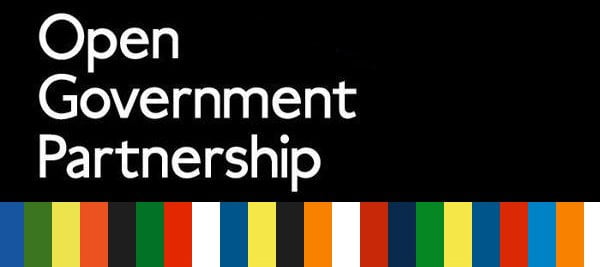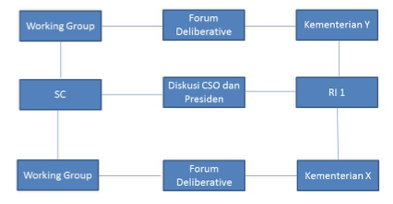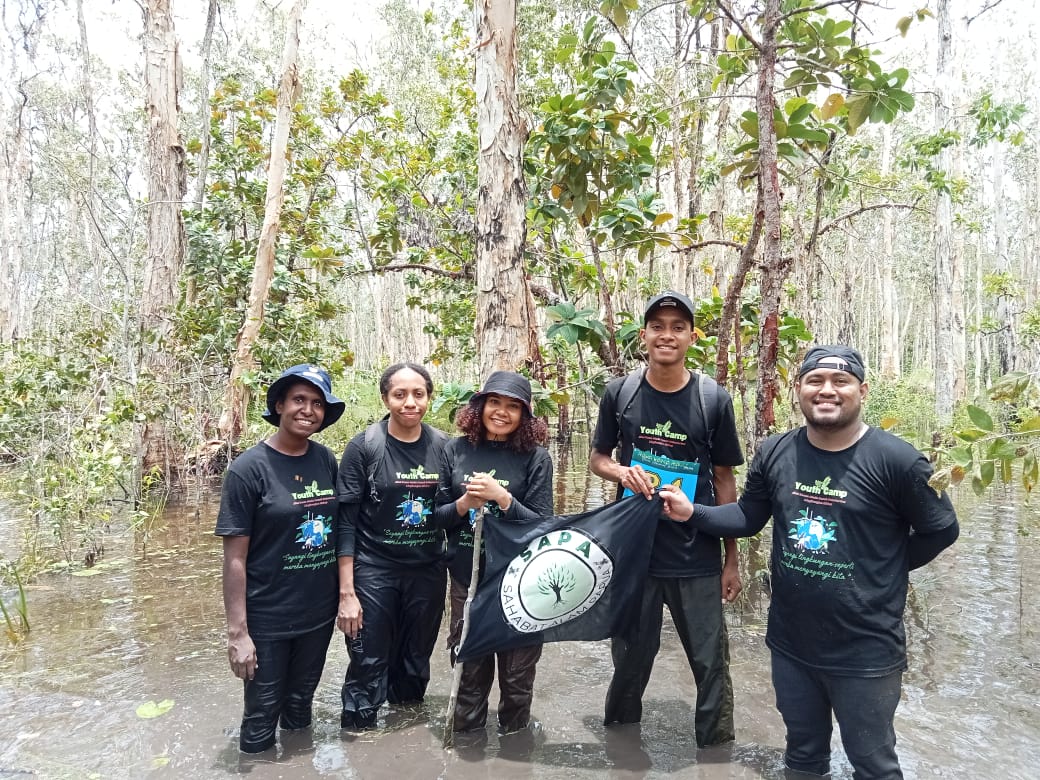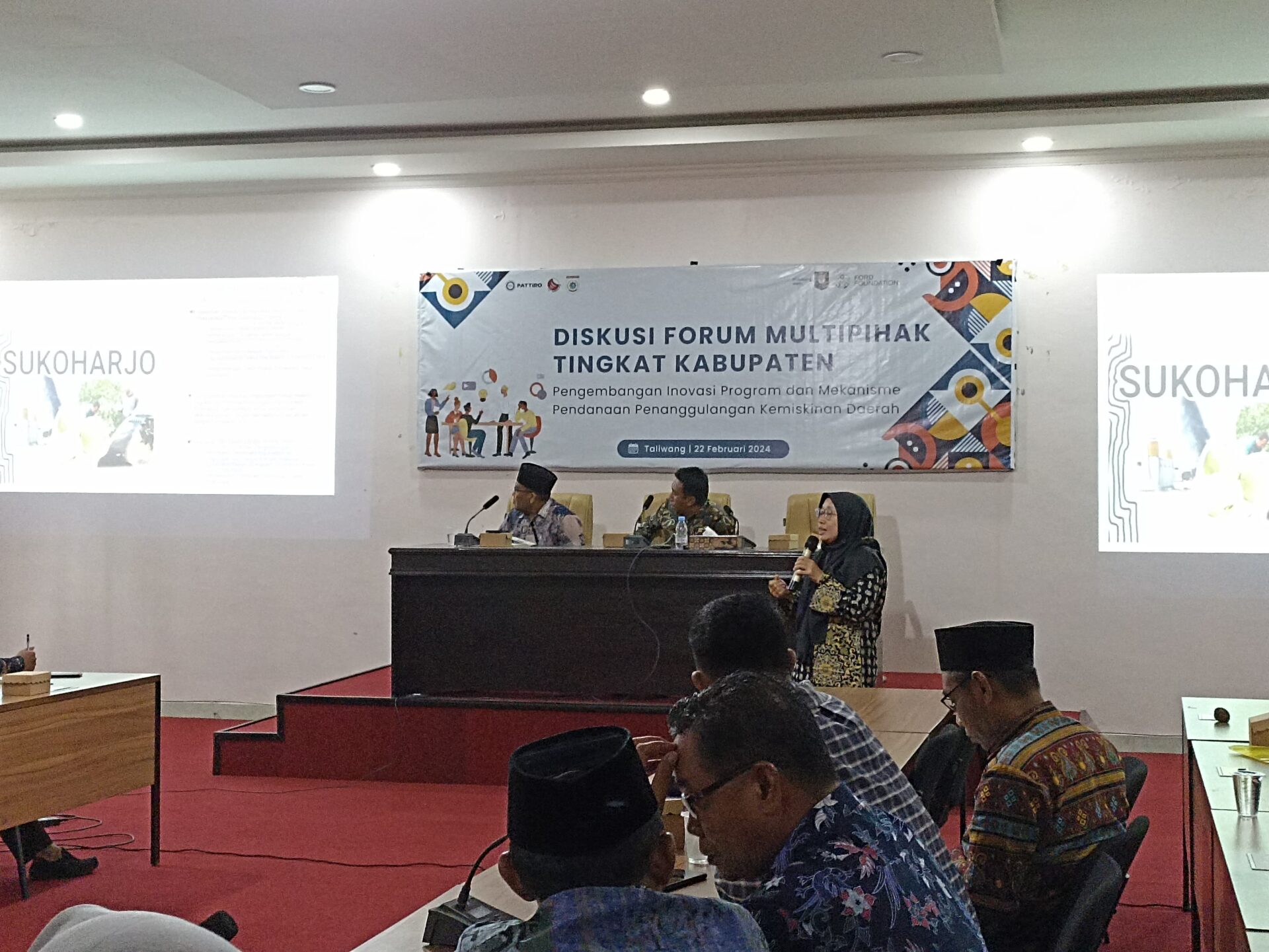Since the Open Government Partnership Asia Pacific Regional Conference in Bali, May, 2014, the civil society’s belief that the Open Government Partnership could bring big changes in the Indonesian government has grown stronger. From then on, the civil society has also become more aware of their part in the government. They now realize that in this new era of openness their role is not merely as a spectator or observer, but more – as a consultant and discussion partner of the government. Moreover, they argue that it is the time for the authorities to start opening themselves and working together with civil society in creating and formulating public policies. They believe that good civic engagement could maintain and even escalate the public officials’ accountability competency level resulting in the creation of strong and good public policies. Eventually, the dream of having an open, accountable, and anti-corruption government will come true.
Collaboratively coordinated by the International NGO Forum on Indonesian Development (INFID), Center for Regional Information and Studies (PATTIRO), Transparency International Indonesia (TII), Indonesian Parliamentary Center (IPC), Indonesian Budget Center (IBC), Indonesia Corruption Watch (ICW), Indonesian Center for Environmental Law (ICEL), National Secretariat of Indonesian Forum for Budget Transparency (SekNas FITRA), MediaLink, and YAPPIKA and supported by Omidyar Network, HiVos, and TIFA Foundation, Open Government Partnership National Consolidation Day was held in Jakarta, 19-20 November 2014. Taken place in Royal Kuningan Hotel, the national meeting is attended by Indonesian government representatives such as Indonesian Presidential Delivery Unit for Development Monitoring and Oversight (UKP4) and parliament member, as well as the representatives of Civil Society Organizations (CSOs) from three regions in Indonesia; west, middle, and east region.
In the meeting, civil society discussed the existing governance and institionalisation of participation in Indonesia democracy including the weakness, the strength, and the changes since reformation in 1998.
Civic engagement in monitoring the government in Indonesia has developed sufficiently well. However the CSOs consider that this good civic involvement still has to be coordinated. The CSOs get the notion that this civil society participation needs to be institutionalized into a formal institution. It is aimed to equalize their position with the government – as a consultant and discussion partner of the government in creating and formulating public policies as well as in making decisions.
Therefore, the CSOs take the initiative to create an organization structure model mirroring the government’s. “It is so we can sit together and establish a partnership with the government”, said Wandy Tuturoong from Transparency International Indonesia.
Figure 1.1
According to the scheme above, the central position of the CSOs organizational structure is the Steering Committee (SC) whose position is equal to the president. This is intended so the SC could represent the CSOs in any discussions and dialogues with the president regarding the public policies on various priority sectors. Besides SC, there are working groups which will be focused on the issues on priority sectors such as public service, budget and tax reform, open parliament and political party, law enforcement and judiciary, environment and natural resources/extractive industry, and village development. These working groups will later be equal to the ministries of Jokowi’s Cabinet. Thus, the communication and coordination between CSOs and the government in discussing the people’s need could run smoothly.
In this national meeting, it is decided that the Working Group will consist of various CSOs focusing on those priority sector while the Steering Committee position will be filled by those CSOs representation. The Steering Committees are, Sugeng Bahagijo, the Steering Committee of Open Government Partnership Global, Nanda Sihombing from Center for Regional Information and Studies (PATTIRO) representing the public service sector, Ahmad Faisol from MediaLink and A.S Burhan from Batang Association of Social Studies and People’s Advocacy (LASKAR Batang) representing village development sector, Lukman Hakim from National Secretariat of Indonesian Forum for Budget Transparency (SekNas FITRA) and Tenti Kurniawati from Institute for Development and Economic Analysis (IDEA) Yogyakarta representing budget and tax reform sector, Choky Ramadhan from Indonesian Judicial Monitoring Society (MAPPI) representing law enforcement and judiciary sector, Sulastio from Indonesian Parliamentary Center (IPC) and Muhammad Akil from South Sulawesi Legislative Monitoring Committee (KOPEL) representing open parliament and political party sector, and the environment and natural resources/extractive industry sector represented by Astrid Debora from Indonesian Center for Environmental Law (ICEL) and Triono Hadi from Indonesian Forum for Budget Transparency (FITRA) Riau.
The CSOs hope that the deliberative democracy which gives more space to civil society and the government to communicate with each other and consult each other in formulating public policies could be realized, so that the dream of having a more transparent, accountable, and clean government would come true.
Writer: Ega Rosalina
Editor: Nanda Sihombing







